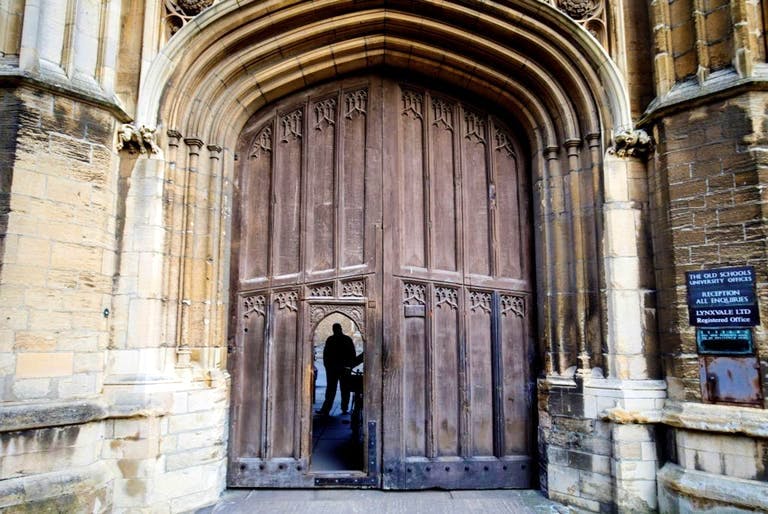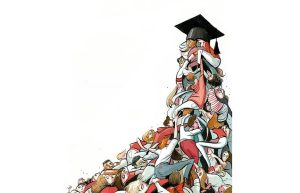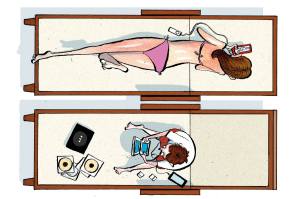Dr Noah Carl, the young conservative academic who was fired from his Cambridge college after being targeted by a left-wing outrage mob, has decided to fight back. He is launching a campaign to crowdfund a legal action against St Edmund’s College, not just to restore his own reputation but to protect the rights of other scholars who find themselves being persecuted for challenging the prevailing orthodoxy.
‘This isn’t about whether you agree with my research or my political views,’ he says. ‘This is about protecting freedom of speech, and standing up to the activists who are trying to control our universities. Hardly a week goes by without another case of someone being fired, or disinvited, or deplatformed, just for holding a certain viewpoint. It needs to stop. Let’s show St Edmund’s College that they can’t get away with this.’
Noah Carl’s difficulties began last November after he was awarded the prestigious Toby Jackman Newton Trust Research Fellowship. A group of hard left academics circulated an ‘open letter’ condemning the appointment and accusing him of ‘racist pseudoscience’, although they were unable to produce any evidence to back up that charge.
Carl’s chief sin apparently was to write a paper entitled ‘Net opposition to immigrants of different nationalities correlates strongly with their arrest rates in the UK’ in which he pointed out that those migrants the British public feels most ambivalent about are the ones most likely to commit crimes when they arrive in the UK.
To suggest that there might be a rational, evidence-based reason for the suspicion of any immigrant group was heresy in the eyes of open borders evangelists. This, and the fact that he’d written a paper defending the right of intelligence researchers to examine whether group differences in IQ are genetically influenced, was sufficient for these enforcers of progressive dogma to brand him a racist and demand he be sacked. No doubt the fact that he is pro-Brexit added to their hostility. (You can read Carl’s rebuttal of the charges against him here.)
The proper response by a college or university to this attack on free speech is to tell the protesters to take a hike, as David Yager, the president of Philadelphia’s University of the Arts, did when a group of loony left students called for Camille Paglia, the celebrated anti-feminist intellectual, to be replaced by a ‘queer person of color’.
As Noah Carl points out, ‘the whole point of a university is to explore controversial topics and debate controversial ideas.’ But not St Edmund’s College. In an attempt to placate the left-wing mob, it launched two ‘investigations’, one into the appointments process, the other into Carl’s research.
The first of these, chaired by Sir Patrick Elias, a distinguished lawyer, exonerated him. It is full of praise for Carl, who was put through a rigorous and lengthy application process:
‘Dr Carl was chosen by the College from a field of some 943 candidates in the field of the arts, humanities and social sciences. On the face of it he was an extremely strong candidate indeed having performed with conspicuous success at every academic stage’
‘There was common agreement amongst the Interview Panel that Dr Carl was the most impressive of all the interviewees…’
‘The Fellow who missed the final discussion was very clear that Dr Carl was the best candidate of those he had seen, and he was the unanimous choice. No-one else impressed to anything like the same degree.’
Of the ‘open letter’, which has now been signed by over 500 academics, some of them in subjects like critical race studies and media studies, Sir Patrick wrote:
‘This letter made largely unparticularized allegations and assertions. It is surprising to me that so many academics – mostly outside Dr Carl’s discipline and most of whom could not possibly have verified the facts for themselves and had not sought any response from Dr Carl – were willing to give their support to a letter of that kind.’
We know this thanks to a Freedom of Information request that forced St Edmund’s to release Sir Patrick’s report. If St Edmund’s was hoping Sir Patrick’s investigation would furnish it with a pretext for getting rid of Noah Carl, it would have been disappointed. Yet get rid of him it did in April of this year, with the master of the college, Matthew Bullock, cravenly apologizing to the protesters for the ‘hurt’ Carl’s appointment caused.
Was the other ‘investigation’ so damning that it left the college with no choice? We don’t know because the college refuses to release it, but one of the merits of Carl’s lawsuit is that it will force St Edmund’s to do so.
The support for Noah Carl, both in the academic community and beyond, has been considerable. A counter-petition defending him has been signed by over 600 academics, many of them far more eminent than the authors of the ‘open letter’. Supportive articles have run across the media, including this one in the Telegraph by a former deputy mayor of London and this leading article in the Times, which described Carl as the latest victim of the authoritarian Left.
But strong words alone will not be sufficient to end this tsunami of Maoist intolerance. As Carl says, ‘If we want to safeguard academic freedom, and freedom of speech more generally, we need to start imposing real, material costs on the institutions that buckle under activists’ pressure.’ That is why everyone who believes in intellectual freedom should support his lawsuit.
It is worth noting that going to law has worked in similar circumstances. In Australia, the former head of the physics department at James Cook University – Peter Ridd – was fired in 2018 for disputing his colleagues’ alarmist claims about the impact of climate change on the Great Barrier Reef. He decided to sue, financed his case via a crowdfunding campaign, and in April the Federal Circuit Court of Australia ruled his sacking ‘unlawful’. He is now seeking reinstatement.
Another cause for hope is the lawsuit that Gibson’s Bakery brought against Oberlin College after unfairly being branded ‘racist’ by a group of students (I wrote about this in The Spectator last week). Earlier this month, a jury awarded the small business damages of $44m.
Let’s hope that Noah Carl’s brave decision to take on his former employer has an equally positive outcome. To paraphrase Edward Grey, the lamps are going out all over Europe’s universities. If we want to see them lit again, we need to fight for freedom with every weapon in our arsenal.


















